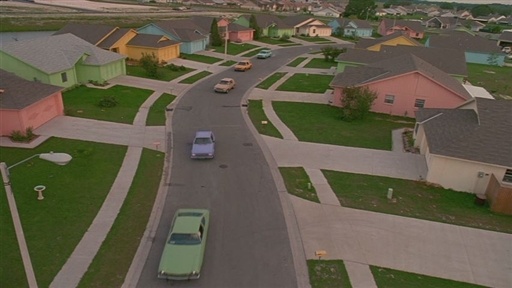Here is a clip of Alfred Hitchcock's infamous shower scene in his film "Psycho" which was released in 1960:
http://www.youtube.com/watch?v=AbH0wp_2vPQDuring the past couple of classes, we've been talking a lot about sex. More specifically, we've been talking about the inexplicit suggestion of sexual violence in films such as 1931's "Frankenstein" and 1979's "Alien". Being the last survivor of a ship that unfortunately lands on a distant planet inhabited by strange creatures, "Alien"'s Ripley is left vulnerable and alone. The camera angles reinforce her vulnerability as the view focuses on her rear as she reaches over a control panel. To cut the story short, the creature leaps out of nowhere, sees her half naked, tries to capture her, but is shot out of a gaping hole and is thrown out of the ship. The creature itself is a male phallic symbol. It wants to inseminate the ship in hopes of creating more monstrous offsprings.
It even 'looks' like a phallus.

Now, in "Frankenstein", the gap between Elizabeth's encounter with the monster in her bedroom and her screams suggest that the film maker's censorship insinuates that Elizabeth had been raped in between the gap. Her tossled hair and limp body on the bed further reinforces this idea.
I would like to now focus on Hitchcock's "Psycho". The female character in the shower cannot be any more vulnerable ... being naked and all. Then someone comes out of nowhere with a knife. It is characteristic of "monsters" to come out of nowhere, like from creepy corners, from dark rooms, and eerie garbage bins in dark alleys. In this film, the "monster" comes from behind a shower curtain. Now the stabbing incident is the most interesting part of the shower scene. The knife, according to many cultural critics (especially feminist critics) is symbollic of the male phallus. What caught my attention is this one shot of her lower abdomen being stabbed:

Most of the shots taken during the shower scene are close-ups of the female victim's face but the only shots to show 'penetration' happens to be of her lower abdomen. Once again, we as viewers are inexplicately shown the female characters being raped by the 'monsters' in the film. With closer examination, we see a conventional image of the defenseless female unable to save herself let alone save humanity altogether. To sum up, it seems like the female victims of horror films are left to suffer the same fate.







